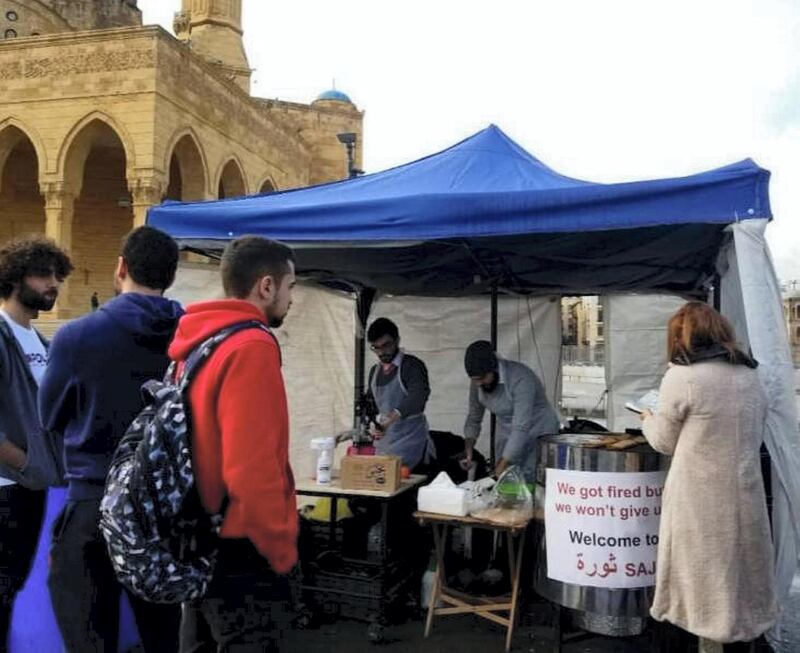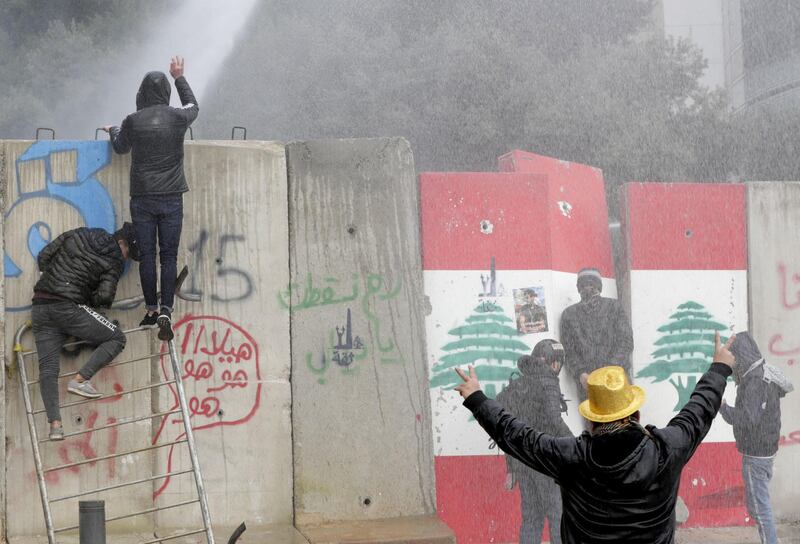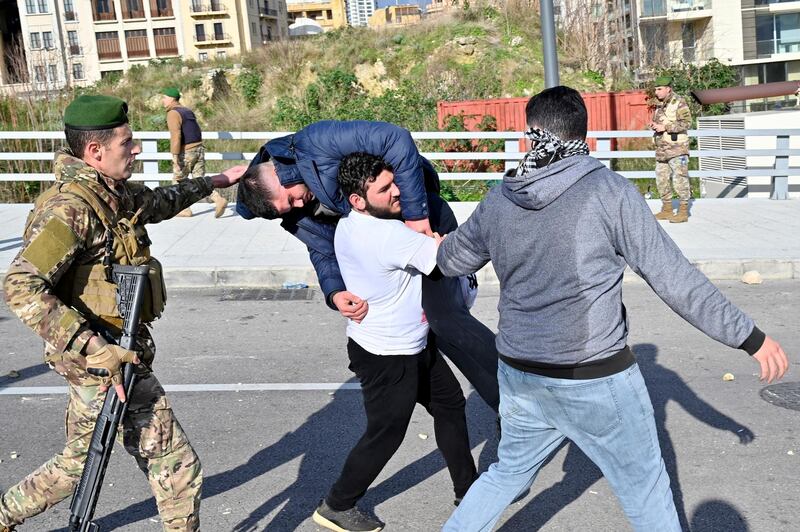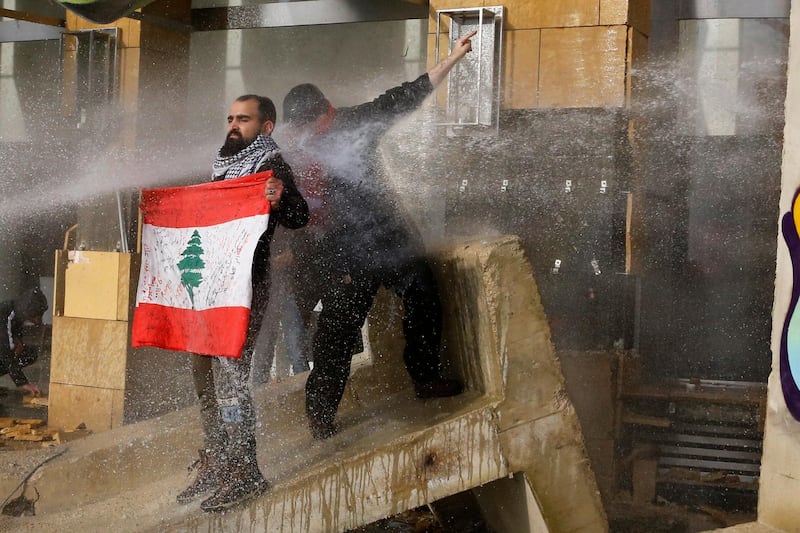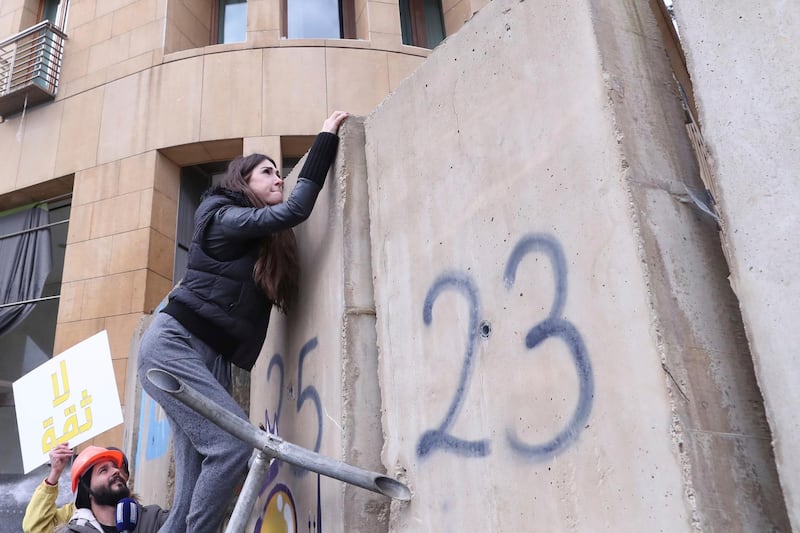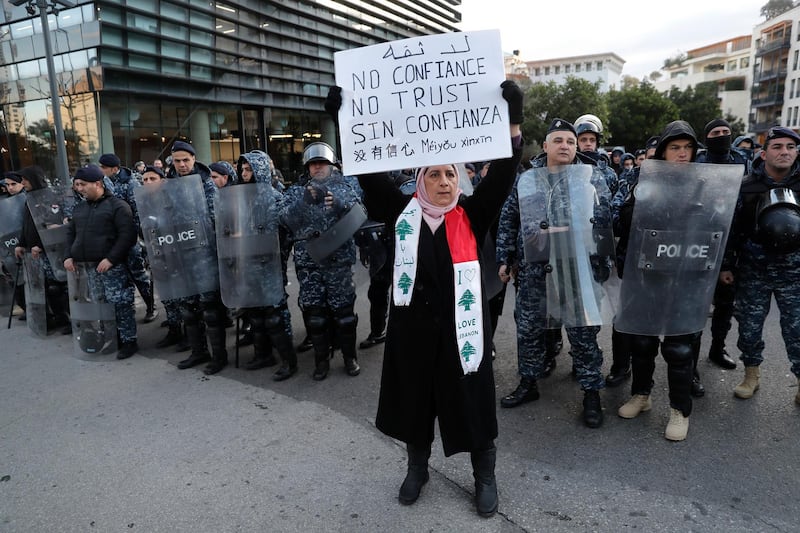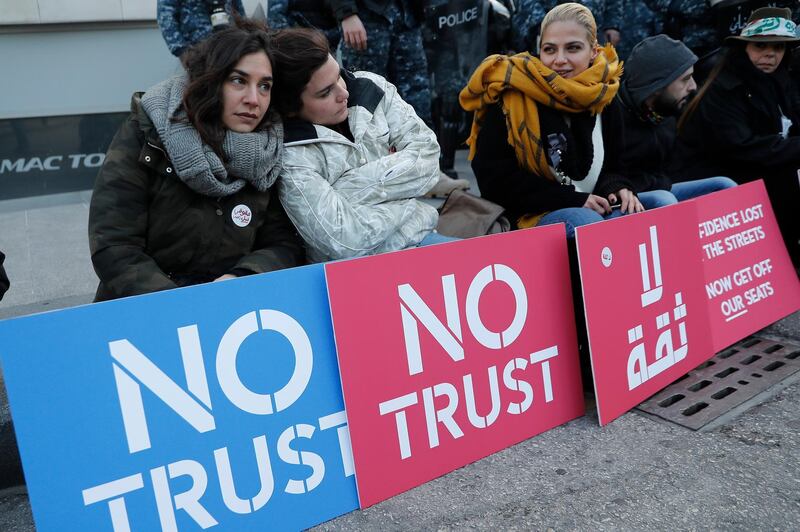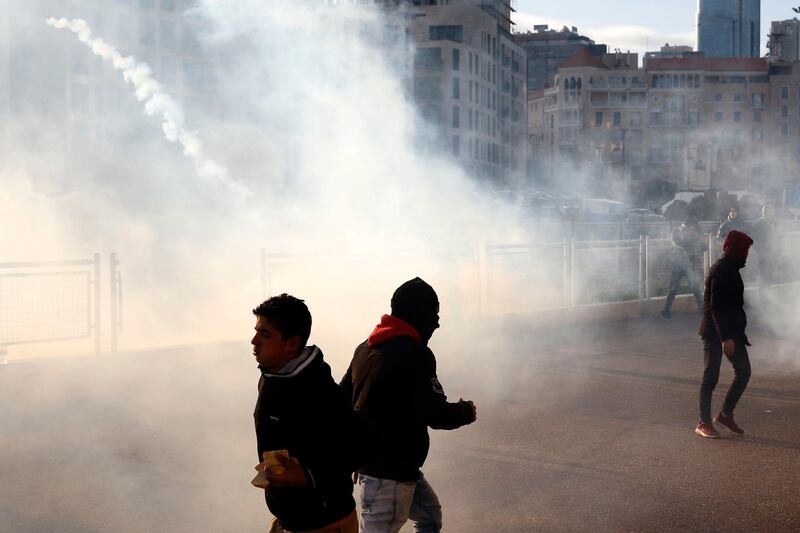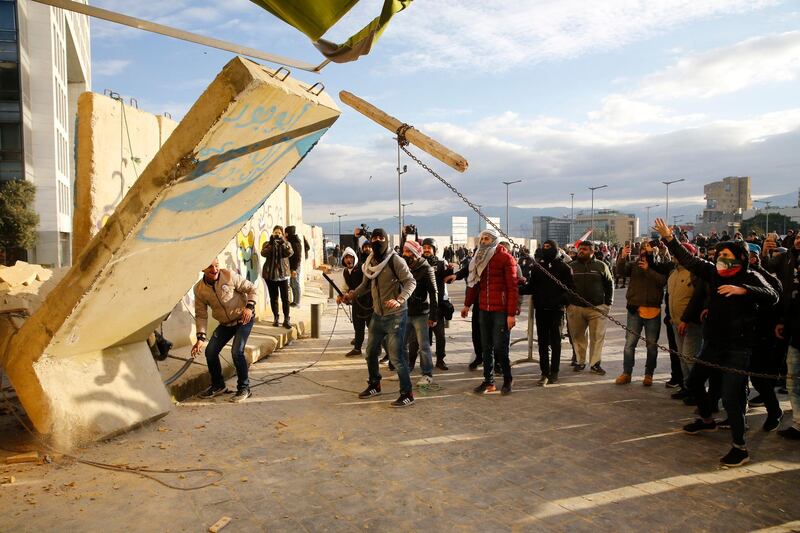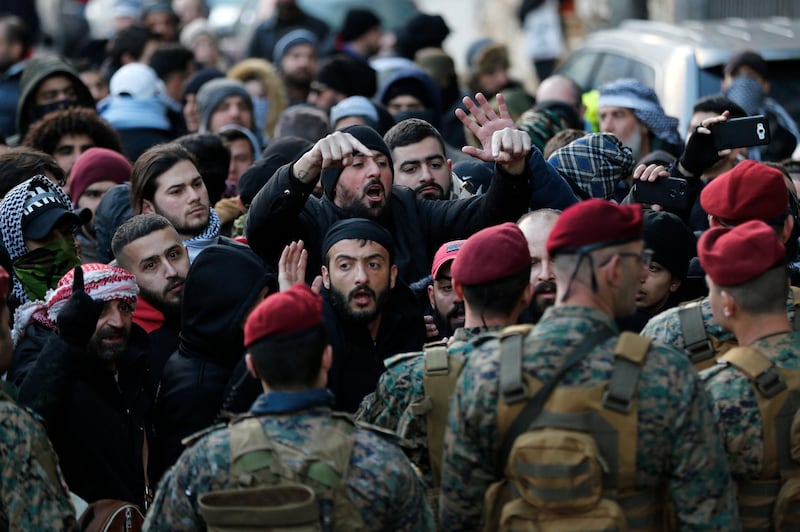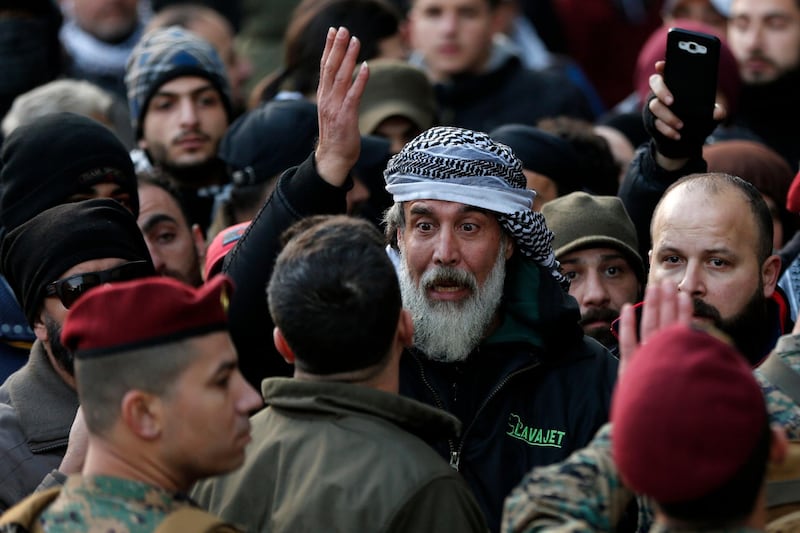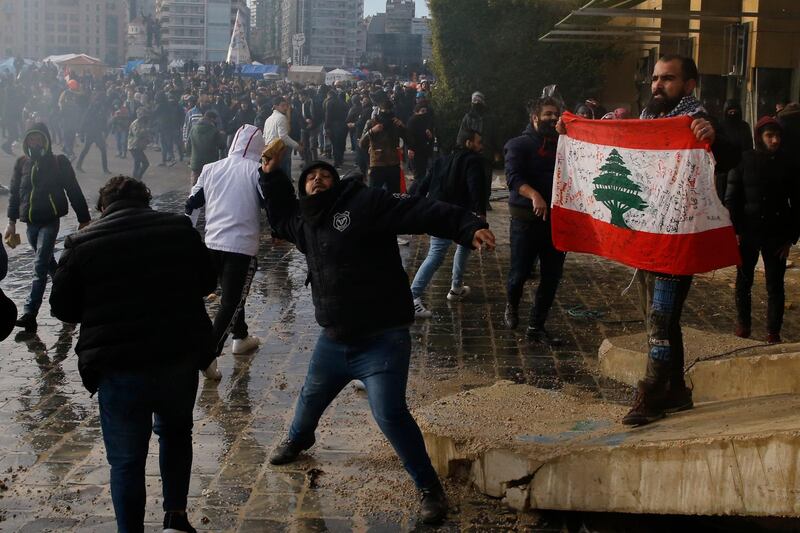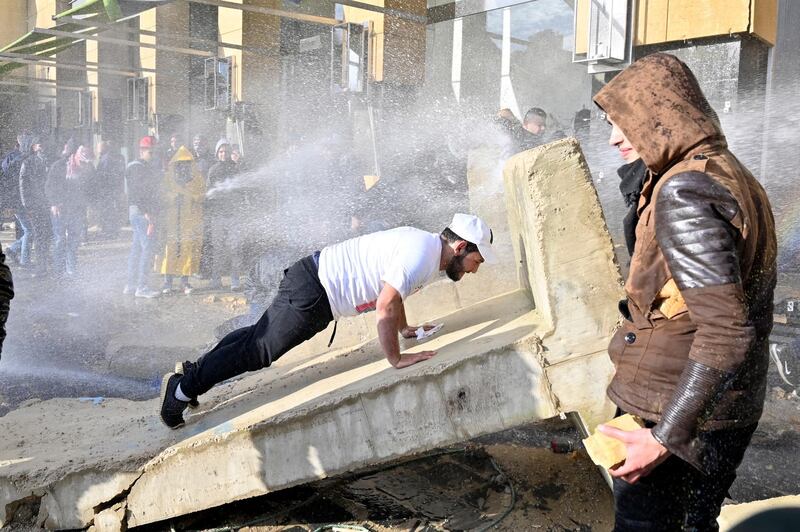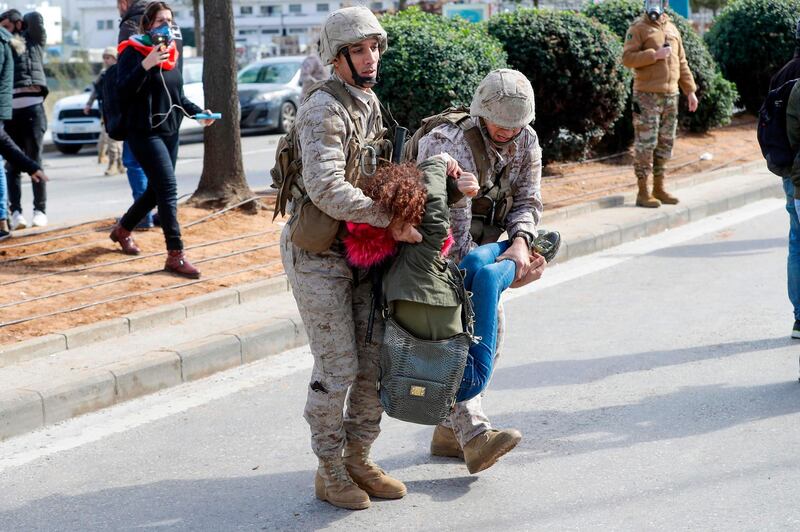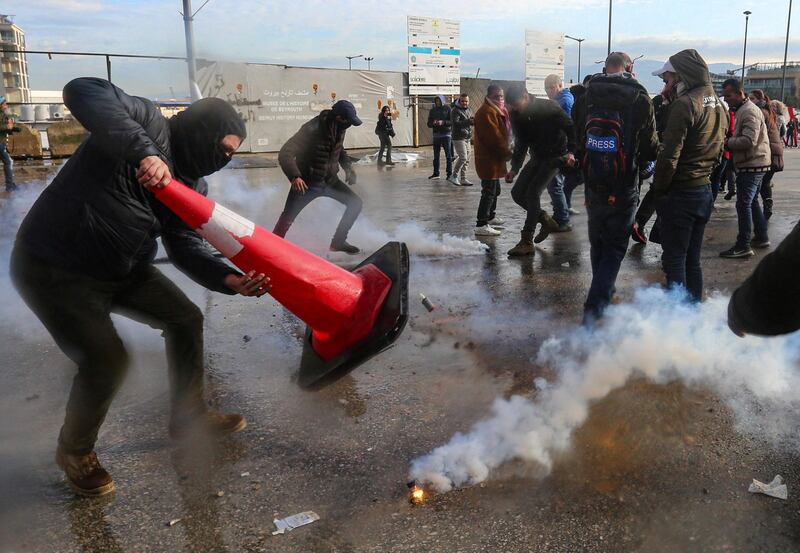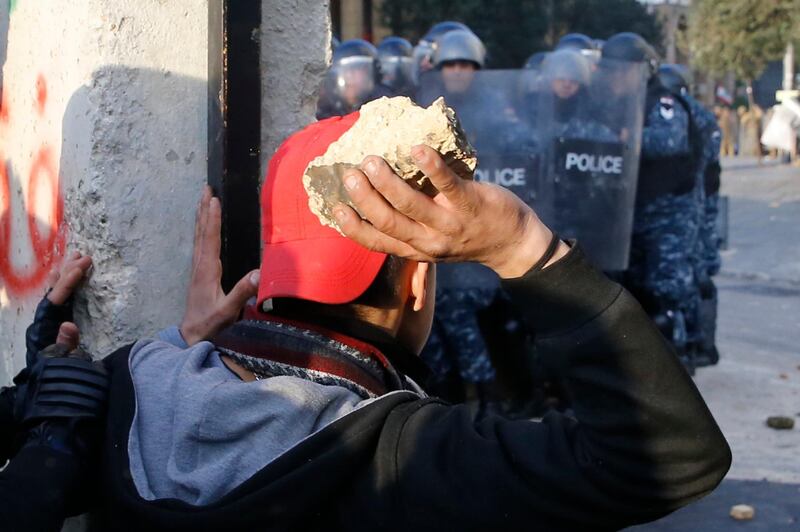Wearing a suit and tie, Mark Darido, 24, and Roudy Hanna, 22, headed to downtown Beirut on January 26 with a few plastic tables and an oven.
For the first time in their life, they made saj, a traditional Lebanese thin flatbread garnished with thyme, cheese or meat.
Mark and Roudy are an odd pair. Saj is a morning meal found in cheap bakeries, not a food that elegant bespectacled young men with university degrees sell in the street.
But they wanted to make a point. Both had just been fired for reasons linked to their involvement in Lebanon’s massive anti-government protests that started on October 17, they said.
They stuck a sign on their oven that read: “We got fired but we won’t give up. Welcome to ‘thawra’ saj.”
In Arabic, “thawra” means revolution. The word has been used by protesters to describe their movement that calls for the country’s elite to step down after decades of corruption and mismanagement.
After they were all set up, a local television crew approached Mark and Roudy for an interview. They were stumped. They did not actually know how to make saj.
The oven had been sitting in Roudy’s home, unused, for the past two years. A friend of his father’s had left it there after closing his shop.
A cameraman interrupted the interview to teach them quickly before he started filming them again.
Ten days later, Mark jokes that he has become a “king of saj”, which are sold for between one and two dollars each. Roudy specialises in making fresh juices.
“We make a little profit, enough to cover accumulated rent that I could not pay,” said Mark. “But we give away most of our saj for free.”
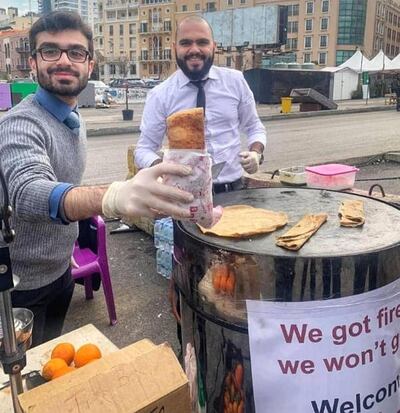
They have since moved to a small tent in downtown Beirut that was donated by a protester who did not reveal their identity.
Mark and Roudy are emblematic of Lebanon’s shrinking middle class who have the most to lose from the country’s economic crisis.
Today, 30 per cent of Lebanese live below the poverty line, but that percentage could climb to 50 if nothing changes, the World Bank warned recently.
Local statistics are unreliable, but President Michel Aoun has said youth unemployment stood at 35 per cent.
There are many young Lebanese like Mark and Roudy among Lebanon’s protesters.
They are highly articulate, educated and desperately want to change their country. They have discovered that together, they can challenge their ageing political elite with creativity and solidarity.
For Mark and Roudy, selling street food is far from a dream job. But the humble saj has become a symbol of their determination to improve their lives, whatever the cost.
“We wear our ties and sell saj. It’s a message: we Lebanese people don’t give up,” said Roudy, who studied computer science but dropped out for financial reasons. His most recent job was as a business development executive in the media sector.
Mark, who used to work as an after-sales representative with an elevator company, studied hospitality management. Both are hooked to social media, where they have several thousand followers.
They are proud of their education. Mark pasted copies of his university certificates on their saj oven.
Last weekend, they called on other unemployed young Lebanese to stick copies of their university certificates on one of the concrete walls that security forces set up to block protesters from reaching the parliament building.
More than 100 people responded. “We call it the 'wall of qualifications',” said Roudy. When they were first erected, the concrete barriers were dubbed “the wall of shame”.
Food famously brings people together. Roudy pointed out that Khandaq Al Ghamiq, a poor area in downtown Beirut whose residents remained fiercely loyal to one of Lebanon's main political parties and hostile to the protesters, had warmed to “thawra saj”.
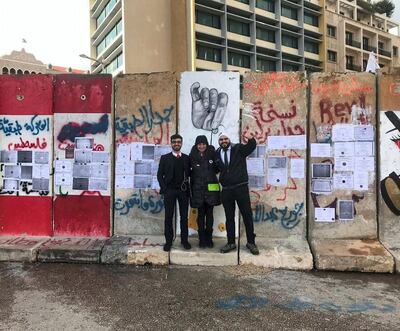
“A high-profile man from Khandaq came to us and said, ‘we saw you on TV. We support you. You’re one of us’,” Roudy recalled.
Though they may be divided about protests, the Lebanese have all been hit hard by the economic crisis.
A recent study conducted by local research company Infopro found that 220,000 jobs had been lost between mid-October and late January. As banks restrict cash withdrawals, people cannot even fall back on their savings.
Lebanon’s ruling elite has consistently failed to create jobs, providing instead quality universities to educate its youth so that they can work abroad and send back remittances to bolster the economy.
For many young Lebanese, the most obvious choice is to emigrate. But not for Mark and Roudy. “We will never leave. We would pour blood for this country,” said Roudy defiantly.
They are secretive about their future plans. They know that this is the time to capitalise on their small fame.
Whatever happens to their business, now is the moment for people like them. From street art to free food, Lebanese protesters have imagined various ways to show solidarity. And why not make some money along the way if they can?
